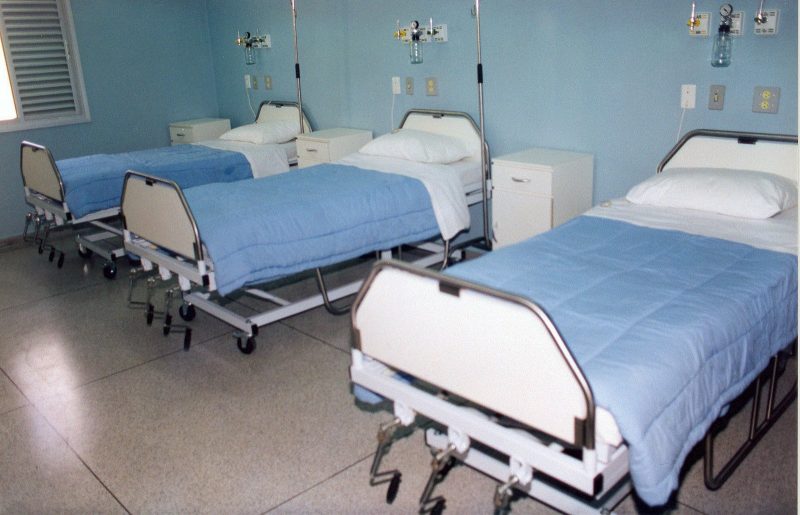latest
Massachusetts nurses detail “violent attacks” in bid for workplace protections

Sam Drysdale
STATE HOUSE, BOSTON, OCT. 4, 2023…..Registered nurse Laura Ireishaw was removing a patient’s IV when he punched her in the left side of her face, fracturing her orbital and nasal bones. After a surgery, she was back at work a week later.
Susan Landers, a nurse of 30 years, decided to leave the industry she worked in for three decades after she was strangled on the job. Michelle Valentino received a traumatic brain injury and facial fractures after a patient knocked her unconscious and stomped on her head, and now she fears for her 21-year-old daughter who chose the same career path as her.
Nurses pleaded with lawmakers on the Joint Committee on Public Safety and Homeland Security on Wednesday to approve a bill that they say would strengthen workplace protections for health care workers in the midst of a crisis of worsening violence in hospitals around the state.
“Violent attacks happen and they happen frequently,” Ireishaw said.
According to the International Council of Nurses, health care workers’ exposure to violence is higher than prison guards and police officers, Sen. Joan Lovely said during her testimony on the bill she filed alongside Rep. Denise Garlick (H 2330 / S 1539).
Lovely added that health care workers accounted for 73 percent of all non-fatal workplace injuries and illnesses due to violence in 2018, mostly in emergency rooms.
“I used to think that nursing was the greatest profession there was,” Valentino said. “But what used to bring me so much joy now leaves me feeling anxious, alone and afraid. This job in these conditions has changed me. … This is a crisis that’s happening throughout all of health care. And it’s only getting worse.”
The Lovely and Garlick bill would require health care employers to conduct annual risk assessments on factors that may endanger their workers and to develop plans to minimize the risk. These assessments would identify factors that may put employees at risk, such as staffing levels.
It would also give health care workers seven days to attend to an injury that they got on the job.
Employees would also be able to use this leave to seek victim services or legal assistance, obtain a protective order from a court, appear in court before a grand jury or meet with a district attorney or law enforcement official.
The bill seeks to protect workers from employer retaliation if they file a complaint and requires health care businesses to submit a report twice a year of all incidents of workplace violence to the district attorney’s office in their county. It also requires the creation of an in-house crisis response team to support victims of workplace violence.
“We think this is a common sense approach,” Lovely said. “We really do think that our health care settings need to do more to be able to protect the very people that are caring for the patients that come through their door.”
Massachusetts Nurses Association President Katie Murphy said there is a workplace violence incident every 38 minutes in a Massachusetts health care facility, whether it is by physical assault, verbal abuse or threats, citing statistics from the Massachusetts Health and Hospital Association. Acts of violence against health care workers occur five to 12 times more frequently than the estimated rates for workers overall, Murphy said.
This legislation has been filed twice in the past, and both times was reported favorably by the Joint Committee on Public Safety and Homeland Security.
Last session, the bill died in the House Ways and Means Committee.
But public safety committee members once again voiced their support at Wednesday’s hearing.
Sen. Walter Timilty of Milton, who co-chairs the committee, said hospital violence was “tragic and astounding,” and he and House co-chair Rep. Carlos González told nurses that they were behind the bill.
Several speakers said the bill is more important now than ever in the face of nursing shortages, as health care workers are leaving the industry in search of new professions.
After Landers nearly lost her life when a patient strangled and tackled her, she decided to leave the field.
“I survived, and I’m very grateful to be here. My concussion resolved and I took a part-time job at a health care setting where I felt safe, but I started to have symptoms of PTSD,” Landers said. “Ultimately, I wasn’t able to perform some of my duties safely. I ended up on partial workman’s comp for about four years, I got three years of trauma therapy. … I won’t go back to nursing. I won’t work with people again in the public. I’m too young and I’m too old to take another head injury.”
Valentino went back to work after her traumatic brain injury, but said she was again assaulted by a patient this summer. The patient grabbed her, and she broke two bones in her right hand and strained ligaments and tendons in her wrist and forearms trying to get away from him before a coworker intervened.
“I have a daughter, Grace. She’s 21 years old, and is currently in school to become a nurse. I’ve tried to talk her out of pursuing a career in nursing ever since the day she graduated high school,” Valentino said. “I’m petrified to think that my child will someday be working in the same conditions that I am now.”






You must be logged in to post a comment Login